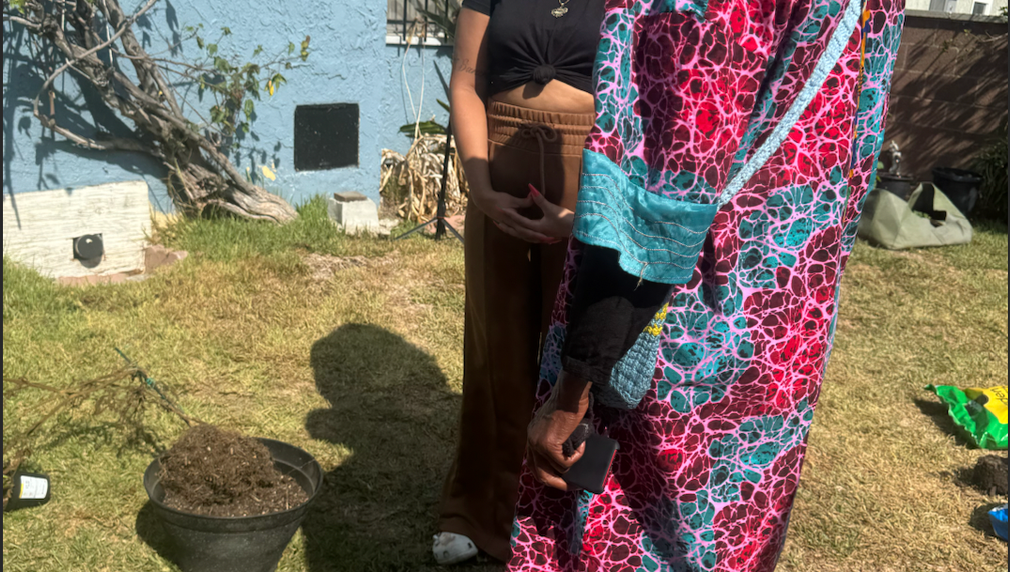Roots of Wellness
Roots of Wellness is an intergenerational gardening and wellness program based at CMS Wellness in Compton that connects elders and young adults through urban farming, mentorship, and monthly workshops. Elders receive garden support and social connection, while young adults gain paid job experience and holistic wellness education. Together, they build a resilient community rooted in food, healing, and shared purpose.

What is the primary issue area that your application will impact?
Health care access
In which areas of Los Angeles will you be directly working?
Gateway Cities
In what stage of innovation is this project, program, or initiative?
Expand existing project, program, or initiative (expanding and continuing ongoing, successful work)
What is your understanding of the issue that you are seeking to address?
Healthcare follows a disease management model. We wait for people to get sick, then treat symptoms with expensive interventions. This has created a system where communities like Compton face higher rates of diabetes, hypertension, and mental health crises because we are not addressing what actually creates wellness. The real crisis is not just access to healthcare. It is the loss of social infrastructure that kept people healthy for generations. Elders who once anchored communities now experience isolation that accelerates decline. Young adults face economic barriers that cause chronic stress, poor nutrition, and a loss of hope. In this cycle, limited opportunity leads to poor health, which in turn deepens economic instability. Healthcare stays reactive, costly, and disconnected from the root causes of wellbeing. We treat people as isolated cases, forgetting that health is communal. Purpose, connection, and the ability to contribute are essential for wellness, but are not addressed.
Describe the project, program, or initiative this grant will support to address the issue.
Roots of Wellness flips the script from disease management to wellness creation through intergenerational gardening partnerships. We pair elders with young adults in paid positions, creating an environment where health happens naturally through purpose, movement, and connection.
Weekly, young adults visit elders' homes to collaborate on gardens. This is structured employment that generates agricultural skills while addressing the social isolation that drives elder depression and cognitive decline. The elders become mentors, reclaiming their relevance while staying physically active through gardening tasks.
Monthly workshops at CMS Wellness expand this model into group learning covering nutrition, movement, and mental wellness. Participants learn to read soil, rotate crops, and prepare healthy meals from their harvest. But they're also building communication skills, and developing the confidence that comes from mastering something valuable.
Young adults earn wages while developing expertise in urban agriculture and eldercare. These aren't dead end jobs but pathways into growing sectors. Elders benefit from consistent companionship and physical assistance while maintaining independence in their own spaces.
We're creating a network of productive gardens across Compton that generate food security, reduces healthcare costs through preventive wellness, and builds the social connections that research shows are as important as medication for longevity and mental health.
Describe how Los Angeles County will be different if your work is successful.
LA County shifts from reactive healthcare to proactive wellness ecosystems. Instead of waiting for diabetes and depression to require expensive treatment, communities will prevent these conditions through purpose and connection. Elders will no longer be invisible. They will anchor neighborhood wellness networks, turning their homes into teaching sites where young adults learn life skills and earn wages. This creates economic mobility and breaks cycles of generational poverty. Food deserts become zones of abundance, with productive gardens maintained by intergenerational teams that lower grocery costs and improve nutrition. Healthcare costs drop as prevention replaces crisis care. Less medication. Less emergency visits. Reduced nursing home placements as elders stay healthy and connected in their communities. Young adults gain pathways into careers like urban agriculture, eldercare, and community health. LA will prove that true health comes from systems that make wellness the default.
Approximately how many people will be impacted by this project, program, or initiative?
Direct Impact: 50
Indirect Impact: 400